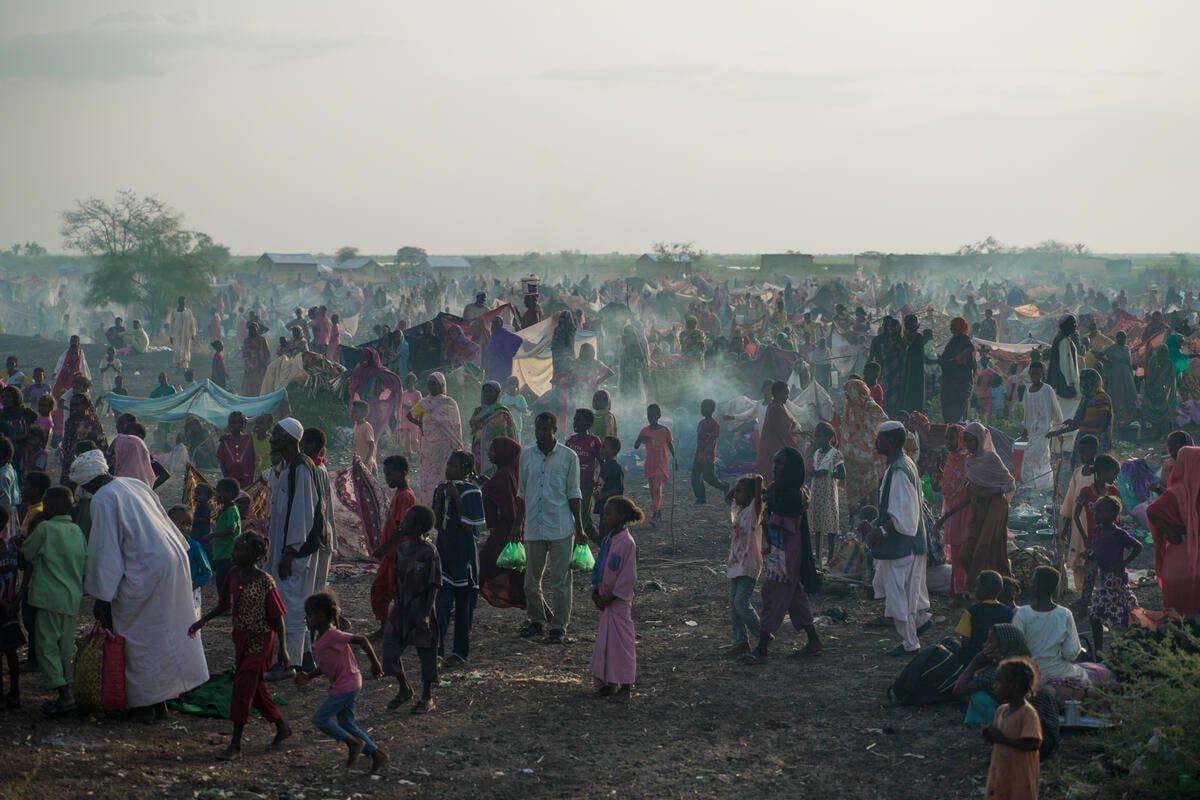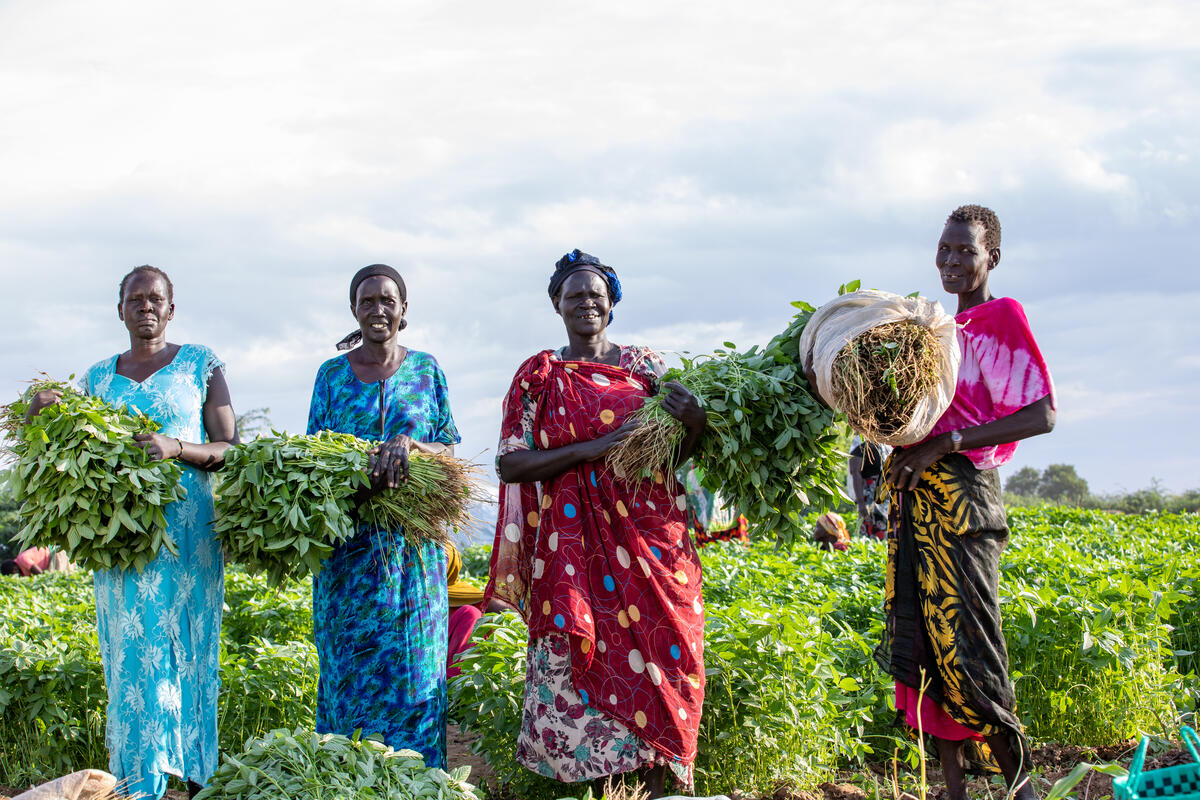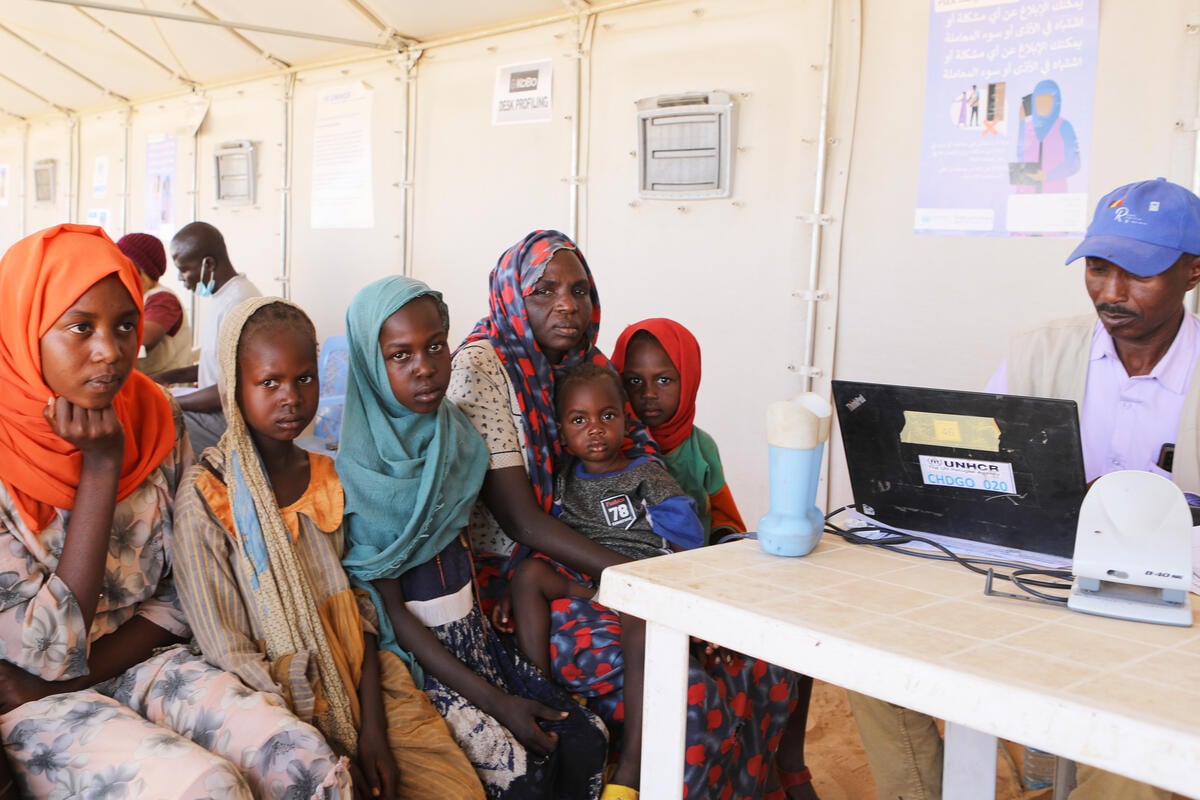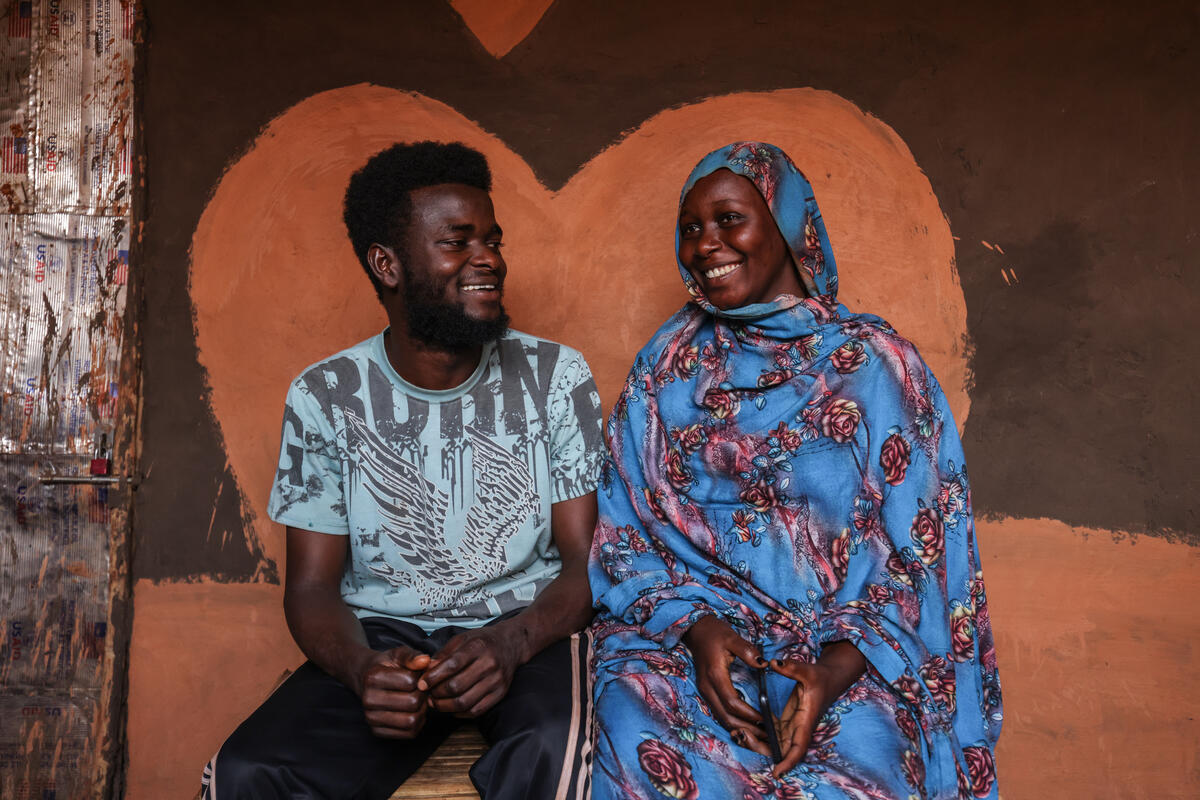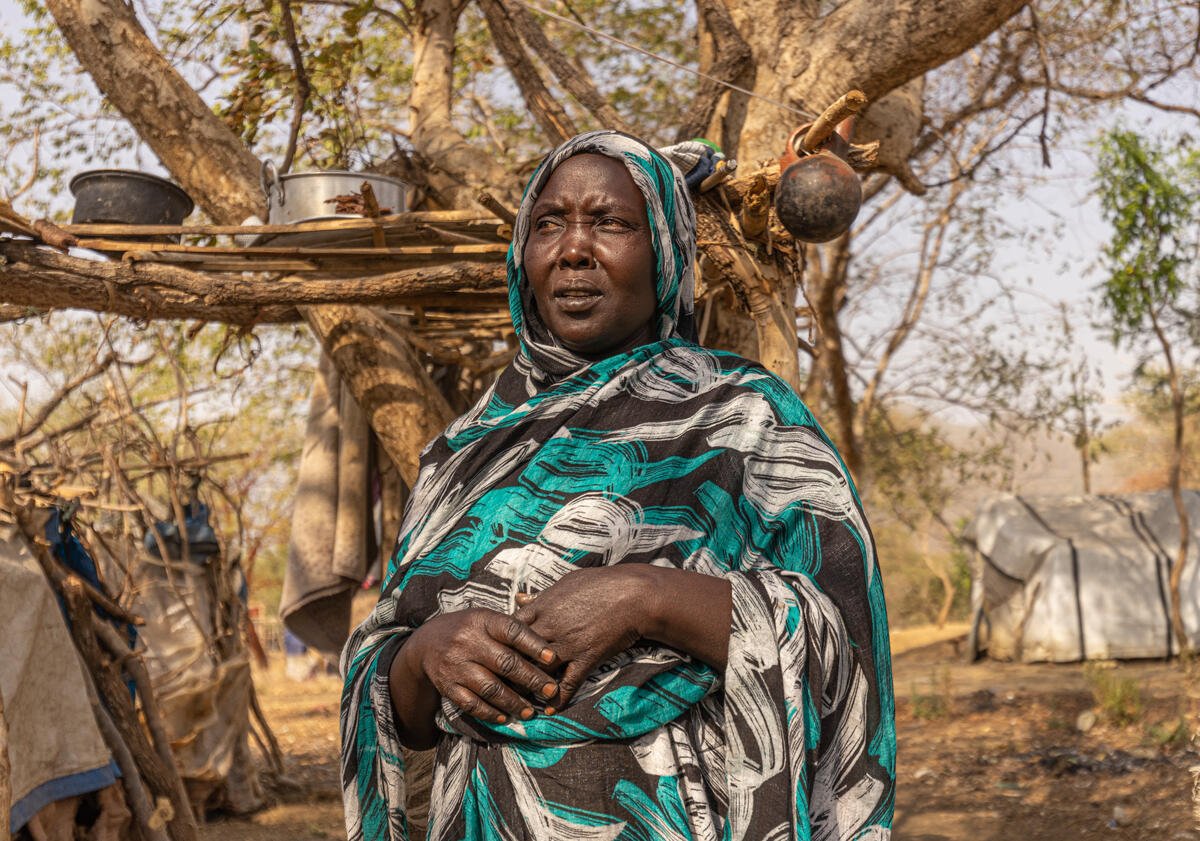Chad: new arrivals reported from Sudan; the burden on Chad
Chad: new arrivals reported from Sudan; the burden on Chad
UNHCR in Chad has reported at least 478 new arrivals from Sudan's strife-torn Darfur region, the first significant number of Sudanese to have crossed the border in about two months. UNHCR staff pre-registered the new arrivals over the past three days near Guéréda, and another 50 were expected to go through the process today.
The refugees, who fled the Saleiha region of Darfur, have apparently been entering Chad in small groups since the beginning of the month. UNHCR sent an inspection team to the border on August 9 after hearing from refugees at Kounoungo camp that numerous persons who had recently crossed the border were showing up spontaneously at the camp.
Asked why they had fled to Chad only recently given the frequency of attacks on their villages, they replied that Sudanese officials had previously given them assurances that their villages would be protected, that peace would come soon, and that they would be provided with food. The refugees also said that janjaweed patrols had blocked persons trying to leave in large numbers or those who had substantial herds of cattle. The refugees added that many vulnerable people, such as pregnant women or the elderly, are not capable of making the journey.
The refugees said they had finally decided to leave because they lost hope that peace would come, had limited resources given the constant looting by the janjaweed and because they sensed that the janjaweed and authorities connived to prevent them from leaving. Many others have been redirected to designated camps inside Sudan, according to the newest refugees.
A large number of the new arrivals said they had crossed into Chad six months ago but had remained at the border, refusing to move to UNHCR camps because they hoped peace would come soon and because at the time they had large numbers of livestock they could not take care of in the camps. Many said they returned with their animals to villages in the Saleiha region, but crossed back into Chad after raiders decimated their livestock. Those who have returned in the last few days say their only hope now is to be relocated to the Kounoungo and Mile camps.
The newly arrived refugees said it took them between one and four days to reach the Chadian border, depending on the means of travel, and because they hid from janjaweed and Sudanese military patrols during the day. According to the refugees, some of those trying to leave were forcibly transferred to Saleiha or El Geniena.
UNHCR continues to closely monitor the border area to determine whether the recent arrivals are an exception to the two-month trend that had seen negligible numbers of people cross the Chadian border, or whether they are the first of a possible new wave of Sudanese crossing into Chad.
Meanwhile, our new head of Sudan operations, Mr. Jean-Marie Fakhouri, leaves Chad to return to Darfur today, continuing his mission to assess how we can better help more than 180,000 Darfuri refugees in eastern Chad, as well as many of the estimated 1.2 million Darfuris displaced within Sudan.
In the capital, N'Djamena, and in eastern Chad, he held talks with national and local government officials, from whom we have received excellent co-operation in coping with the huge influx of refugees. Chad's prime minister, foreign minister and interior minister all stressed to Mr. Fakhouri what an enormous burden the refugees are putting on their country. They told Mr. Fakhouri that any large, new arrival of refugees could destabilise the already fragile Chadian economy.
The burden to Chad is indeed enormous. More than 180,000 refugees are now living in a vast, barren area of eastern Chad where the local population numbers only 80,000. In some areas, camps of 15,000 people have been established in communities of only 1,000. Local authorities told us that before our camps were established, local people fed the refugees. Now that the refugees are being fed in the camps, the local people are putting pressure on their government to get food to replenish the stocks they earlier gave away.
In addition to its chronic poverty and the influx of refugees, Chad has now been hit by a locust plague that moved in from West Africa.
Mr. Fakhouri stressed the fragility of the situation in the camps in the east, particularly Iridimi camp, where he met refugees. We are concerned about whether food will be available to feed the refugees after the rainy season ends in September, and with WFP are appealing to donors to keep the pipeline full.
Security continues to be a problem in eastern Chad. On Saturday night, two armed men reportedly killed four male refugees at Senette.


